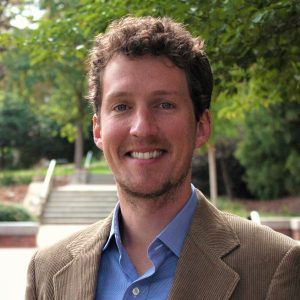Alan Kinlaw
Assistant Professor
Not currently accepting new PhD students
 PHONE
PHONE(919) 966-2747
akinlaw@unc.edu
ADDRESS
2201 Kerr Hall, , CB# 7573, Chapel Hill, NC, 27599-7573
DOWNLOAD CV
Alan Kinlaw, Ph.D., is an assistant professor in the Division of Pharmaceutical Outcomes and Policy. His research focuses generally on pharmaco-epidemiology and health services research that leverages large and high-dimensional secondary data, including healthcare claims data, clinical registry data, and electronic health records. He studies utilization patterns and comparative effectiveness and safety of prescription drugs, vaccines, medical devices, and surgical procedures. He collaborates extensively with colleagues in the UNC schools of Public Health, Medicine, Pharmacy, and the Cecil G. Sheps Center for Health Services Research. He teaches the Epidemiologic Research with Healthcare Databases course, and enjoys teaching and mentoring graduate students and fellows who wish to gain experience in epidemiologic research.
Substantively, Kinlaw’s research focuses primarily on the issue of antibiotic stewardship, in both the pediatric and adult population. Reducing unnecessary and excessive prescription of antibiotics could curb the frequency and extent of bacterial resistance to antibiotics, reduce incidence of other unintended adverse effects of antibiotics, and decrease unnecessary financial expenditures for antibiotics and acute clinical consultation. His ongoing work in antibiotic stewardship includes analysis of electronic health records to: identify guideline-discordant prescribing of antibiotics; examine the impact of FDA boxed warnings on prescribing patterns; compare effects of respiratory viral testing on antimicrobial de-escalation in hospital patients; and surveillance of adverse drug reactions among patients with severe systemic infections who continue intravenous antibiotic therapy outside of the hospital.
In addition to antibiotic stewardship and treatment of infectious diseases, Kinlaw has also pursued collaborative research in several other therapeutic areas, including gastrointestinal disease (e.g., ulcerative colitis, Crohn’s disease, diverticulitis), cancer, asthma, overactive bladder, cardiovascular disease, and pregnancy. He received pre-doctoral funding support from the University of North Carolina and Aarhus University in Denmark, and post-doctoral funding support from the Cecil G. Sheps Center for Health Services Research.

